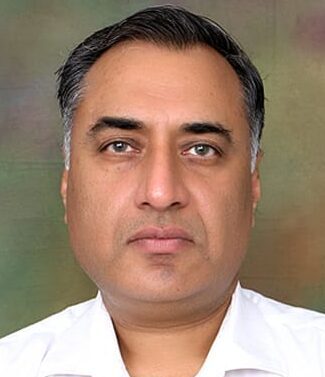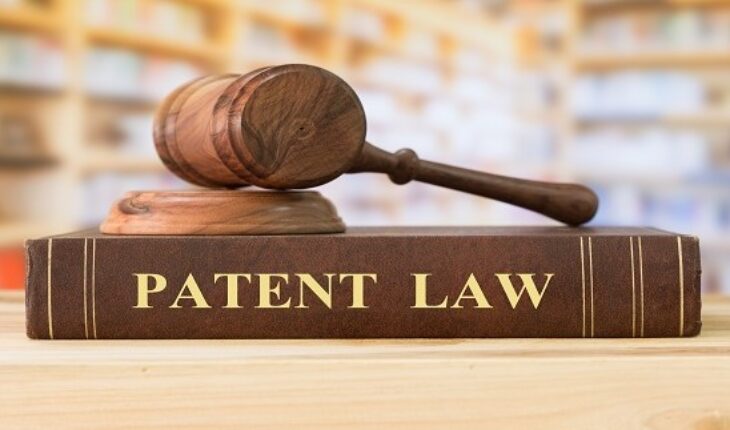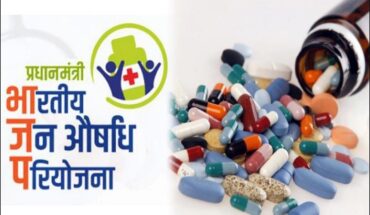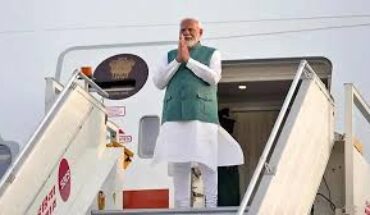

Patent expiry refers to the end of the period of exclusivity granted to the patent holder for a specific invention or product. When a patent expires, it means that the protection and legal rights associated with the patent no longer apply, allowing others to use, manufacture, and sell the invention without infringing on the patent holder’s rights. The term ‘patent cliff’ refers to a significant drop in revenue experienced by a pharmaceutical company when one or more of its key patents expire. Patent expiry has implications for innovator companies, generic companies, investors and consumers. In pharmaceutical sector, implications include ‘increased competition’ due to arrival of generic rivals, ‘consumer savings’ as generic drugs are typically less expensive, ‘decline in sales’ for innovator companies due to generic competition, and ‘opportunities for generic manufacturers’ as generic manufacturers get a chance to enter the market. Previous studies such as Simon von der Schans et al. (2020), Gerard T. Vondeling et al. (2018), Gregory H. Jones et al. (2016), among others have assessed impact of patent expiry on drug prices. Ernst R. Berndt et al. (2007) observed the impact of introducing authorized generics in the market in order to counteract the generic competition. Gregory H. Jones et al. (2016) also discussed the strategies that the innovator pharmaceutical companies have applied to delay or prevent the availability of generic drugs, thereby increasing the price paid by patients, governments, and insurance companies.
To understand the strategies adopted by innovator companies for lowering the impact on sales, we observed the facts regarding top pharmaceutical companies with 30 top-selling drugs which lost their patent during 2010-2020. Innovator companies’ contention is that they get less ‘exclusivity time’, i.e., the average time in years from brand launch to patent expiry. Innovator companies deploy strategies such as evergreening, introduction of generic, product hopping, patent thicket strategies, and also, Pay-for-delay.
Data about 30 top-selling drugs which lost their patent during 2010-2020 shows that the most widely used technique by innovator pharmaceutical companies to fend off the competitors was Lawsuit against Abbreviated New Drug Application (ANDA) Para IV Certificate. The U.S. Food Drug Administration (USFDA) bestows an ANDA to a generic drug under Paragraph I, II, III and IV Certification. In case of Para IV Certification, generic drug manufacturer challenges the validity, enforceability, or infringement of the relevant patents listed for the reference brand name drug. Through filing a Para IV Certification, the generic drug manufacturer states that the listed patents are either invalid or unenforceable or that their generic medication does not infringe any of the listed reference drug’s patents. In 23 out of 30 cases, lawsuits filed by innovator pharmaceutical companies constituted as the most widely used defensive strategy, followed by other strategies, i.e., Line Extension (8 out of 30 cases), authorized generic (6 out of 30), licensing (5 out of 30), Patent thicket or evergreening (4 out of 30), and collaboration (2 out of 30). As companies followed more than one strategy at the same time, so the number adds up to more than 30. For example, for the drug named Bevacizumab, Roche, a prominent Switzerland-based Company, has a brand – Avastin which used to fetch $7073 million in 2019. The brand lost about 29 per cent of sales with sales of $4992 million in 2020 due to patent expiry. As a defensive strategy, it filed a lawsuit against Amgen for not exchanging the information that was stated as necessary by Roche so as to mount a patent infringement attack on Amgen’s biosimilar. Through lawsuit, Amgen was asked to provide the required data for evaluation, and potentially delay the biosimilar’s launch. Roche also launched an FDA-approved combination drug containing Bevacizumab, Carboplatin, and Paclitaxel. In addition to this, Roche had applied for a patent with new indications covering more variants of cancer. Many generic versions were launched by companies like Bevacirel by Reliance Lifesciences, Cizumab by Hetero, Zybev by Zydus, and Abevmy by Mylan.
In case of the drug, ‘Trastuzumab’, Roche launched the drug under the brand name – Herceptin which had the sales of $6039 million in 2019, the period prior to patent expiry. Sales from the brand declined to $3732 million in 2020, i.e., the period after the patent expiry. A decline of about 38 per cent was observed in the sales from the brand due to patent expiry. In this case too, Roche filed a lawsuit against Samsung Bioepis, Amgen and Celltrion, and the company was successful in winning the patent infringement cases in two out of three cases. Roche had challenged Pfizer also for infringing its patent and submitting the application for drug approval to the USFDA and European Medicines Agency (EMA). On patent expiry, generic versions were launched such as Canmab by Biocon, Hertraz by Mylon, Vivitra by Zydus, and Neuzumab by Lupin.
Line Extension is another mechanism applied by innovator pharmaceutical companies, e.g., for the drug named – Telmisartan, innovator company – Boehringer Ingelheim launched the drug under the brand name – Micardis. Prior to loss of patent, the company had the sales of $980.18 million from this brand. Sales declined to $861.26 million after it became off-patent in 2015, with a decline of about 12 per cent. Boehringer Ingelheim had gone for a brand extension to launch Micardis Plus, Micardis HCT, and Co-Micardis (a combination therapy) in order to sustain and retain the share of Micardis in the market. Many Indian pharmaceutical companies got ANDA approvals in 2014 and launched their brands such as Telma by Glenmark, Telista by Lupin, Tetan by Alembic, and Teli by Zydus.
Innovator pharmaceutical companies launch ‘authorized generic’ to preserve market dominance. For example, for the drug – Insulin Lispro, Eli Lilly launched the drug under their brand name – Humalog. As defensive strategy, Eli Lilly introduced an authorized generic version of Humalog in the US in November 2019. Eli Lilly identified the focal point that patients had years of experience and comfort managing their disease on their current regimen and were resistant to change. The company’s messaging focused on the potential negative impact on adherence that their patients could face upon the change in the treatment regimen. In another case, for the drug – Valsartan,Novartis launched the drug under their brand name – Diovan.As defensive strategy, Novartis introduced an authorized generic version of the drug to tackle the competition. Regarding generic version, Lupin got ANDA approval in 2015 and launched it under brand name Eglucent.
Innovator pharmaceutical companies also resort to licensing mechanism, e.g., for the drug – Insulin Glargine, French multinational – Sanofi had launched Lantus which had a sales of $7063 million in 2015, i.e., period prior to patent expiry. Sales declined to $6581 million in 2016 with a decline of 6.82 per cent. Sanofi sued the US-based Eli Lilly claiming infringement of original patents. Later on, both companies agreed to terminate the action under the terms of the settlement through which Eli Lilly agreed to pay royalty to Sanofi on the grant of the license. Many generic versions were launched by Indian companies such as Basalog by Biocon, Glaritus by Wockhardt, Basugine by Lupin, and Basaglar by Cipla. In a similar case, for the drug named ‘Celecoxib’, Pfizer had launched the drug under the brand name, ‘Celebrex’. Celebrex had the sales of $2699 million in 2014, i.e., period prior to patent expiry.Sales declined to $830 million in 2015 with a decline of about 69 per cent.Companies such as Teva, Lupin, Apotex, Mylan, and Watson, were sued by Pfizer on account of patent infringement. Later on, both sides agreed to a settlement and license was granted to market the drug beginning in December 2014.Generic versions were launched by Indian companies like Celib by Torrent, Celcox by Cipla, Sionara by Alembic, Coxib by Micro Labs, and Zycel by Zydus.
Patent thicket or evergreening has also been applied by many pharmaceutical companies to preserve market dominance. For the drug named – Imatinib besylate, Novartis launched a drug under brand name – Gleevec (also sold under the brand name – Glivec). Novartis earned $4.6 bn and $4.7 bn in 2013 and 2014 from sales of Gleevec. The basic compound patent expired on July 4, 2015. Sales from the brand in the year 2016 went down to $3323 mn from $4746 mn in 2015. Novartis had applied for a further patent extension in the US based on a secondary patent that extended its market exclusivity in the US from July 2015 to November 2019. The decline in sales was mainly because of markets other than the US which set a very high bar for approval of such secondary patents. Indian pharma companies launched generic versions such as Imalek by Sun Pharma, Levin by Dr. Reddy’s Labs, Veenat by Natco Pharma, and Imat by Zydus.
Innovator pharmaceutical companies also opt for ‘Collaborations’, e.g., drug – Clopidogrel was launched under the brand name – Plavix which lost the exclusivity in the US in May 2012. Sales from the brand in the year 2012 stood at $2066 million. In 2013, sales declined to $1857 million. Sanofi had granted rights to Bristol-Myers Squibb to co-promote and co-market the drug worldwide. Upon patent expiry, Bristol Myers Squibb had returned Sanofi its rights in all markets except the US. Indian pharma companies launched generic versions such as Plagril by Dr. Reddy’s Labs, Clopilet by Sun Pharma, Deplatt by Torrent Pharma and Clopiflo by Cadila.
‘Pay for Delay’ agreements between big pharma and generic companies have also come under scanner in different countries to keep low-cost medications out of the market for specified terms in return for compensation.
Dr. Anil Kumar Angrish– Associate Professor (Finance and Accounting),
Department of Pharmaceutical Management, NIPER, SAS Nagar (Mohali), Punjab
Omkar Vivek Parab- MBA (Pharm.), Department of Pharmaceutical Management, NIPER, SAS Nagar (Mohali), Punjab
Disclaimer: Views are personal and do not represent the views of the Institute.






